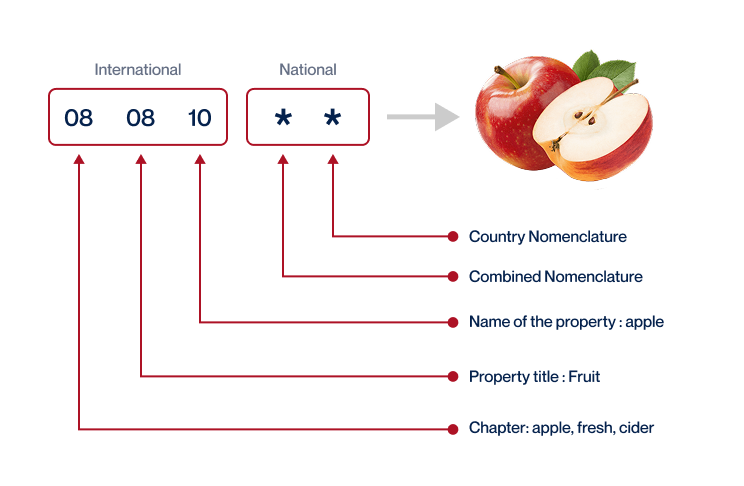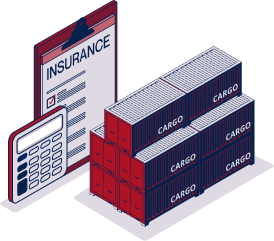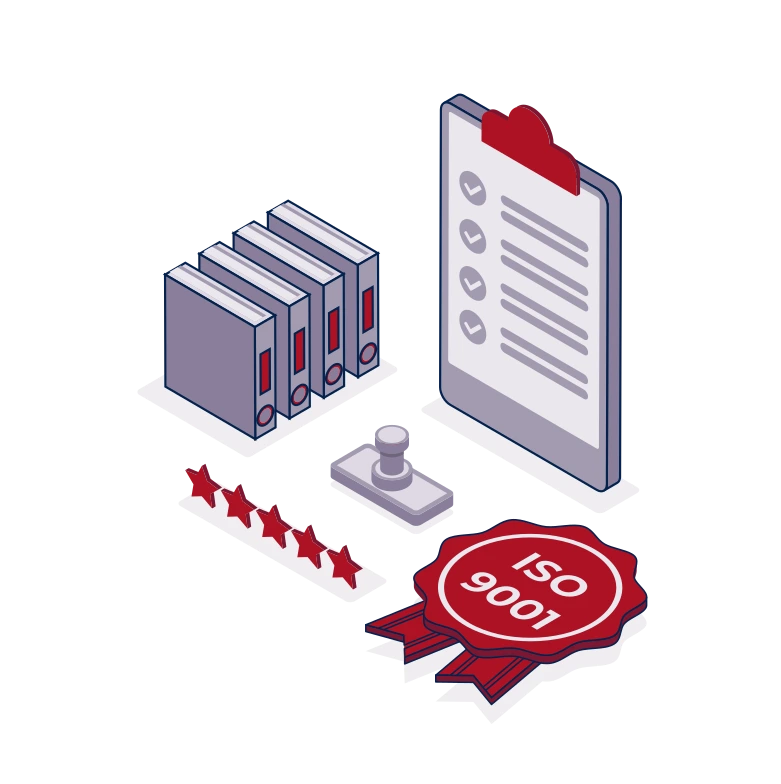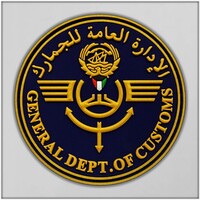Freight Shipping between UK and Koweit | Rates – Transit times – Duties and Taxes
Sending a package from the UK to Kuwait isn't much harder than getting a camel through a needle's hole, right? Jokes aside, the actual complexity of understanding shipping rates, transit times, and customs regulations can make international trade seem quite daunting. This guide will help dissolve your uncertainties about the intricate process of shipping goods between these two countries. We will walk you through specifics of different freight options, whether it's shipping by air or sea, customs clearance requirements, and essential advice about duties and taxes, tailored to your business needs. If the process still feels overwhelming, let DocShipper handle it for you! With our prowess in international freight forwarding, we promise to turn your shipping challenges into successful global ventures.
Which are the different modes of transportation between UK and Koweit?
Selecting the ideal transport method between the UK and Kuwait requires careful thought. Imagine it like picking the best route for a road trip. You would consider the distance and terrain, wouldn't you? Similarly, the long sea journey and limited land routes due to international borders can influence your choice. Now, think of the modes as different vehicles—each with unique speeds, costs, and capacities. Your final pick should sync with your specific business goals, whether it's cost-saving, punctuality, or high capacity. Deciding wisely could be the key to unlock smoother trading paths.
Need help with your shipment?
Need assistance with your shipment? Dont hesitate to contact us even for a simple question. Choose the option that suits you
Live chat with an expert Chat on WhatsApp Free Quote 24hHow can DocShipper help you

Sea freight between UK and Koweit
Shipping goods across the sea from the UK to Koweit? It may seem as intricate as a Shakespearean play but here’s your personal backstage pass to the drama. Picture this- a bustling trade relationship relies on the bustling cargo ports London Gateway and Port of Shuwaikh, two key industrial juggernauts bonded by the sea. Now, ocean shipping may not take the gold medal in speed, but it surely scores high on the affordability scale, especially for those jumbo-sized freight loads.
But, wait. All is not always smooth sailing on this trade voyage. If you’ve ever felt like you’re performing tightrope acrobatics because of the shipping puzzles presented by these two nations, you’re not alone. There’s a dense fog of complications and easy-to-miss details. But fear not, we’re here with a spotlight! In this section, we’re set to untangle this oceanic maze, weaving into best shipping practices and technicalities that will make your trade journey as delightful as a cup of English tea. Stay tuned.
Main shipping ports in UK
Port of London:
Location and Volume: Situated along the River Thames, the Port of London is the second largest in the United Kingdom, and some might argue it holds the most historic significance. It handles over 50 million tonnes of cargo annually, drawing from the large local consumer market and extensive industrial hinterland.
Key Trading Partners and Strategic Importance: This port’s trading partners sprawl across the globe, with EU countries, the Americas, and Asia being predominant. Its strategic position is magnified by its proximal advantage to London, one of the world’s leading financial centres.
Context for Businesses: If you’re looking to service the massive UK and European Union consumer markets, the Port of London, with its extensive connections and large handling capacity, could be an integral part of your logistics strategy.
Port of Southampton:
Location and Volume: Located on the south coast of England, the Port of Southampton boasts handling nearly 2 million TEU annually. It’s also home to the UK’s second-largest container terminal.
Key Trading Partners and Strategic Importance: Key trading partners include the United States, Europe, Far East Asia, and India. Its strategic importance comes from its role as a hub for car and fresh produce imports, as well as its capacity to handle the world’s largest container vessels.
Context for Businesses: If your company engages in the automotive or fresh produce sectors, the strategically-located Port of Southampton—with its enormous vessel-handling capabilities—might be central to your distribution plans.
Port of Felixstowe:
Location and Volume: Perched on the east coast of England, the Port of Felixstowe is the UK’s largest and busiest port, servicing over 4 million TEU per year.
Key Trading Partners and Strategic Importance: Felixstowe’s key trading partners include North America, the Middle East, and Asia. Notably, it maintains strong links with Chinese ports, reflecting the significant trading relationship between the UK and China.
Context for Businesses: If your business is looking to scale up and needs a port that can accommodate high volume, the Port of Felixstowe’s super post-Panamax cranes could facilitate handling and enable faster turnaround times for your goods.
Port of Liverpool:
Location and Volume: The Port of Liverpool is strategically located on the west coast of England, offering access to over half the UK’s total population. It handles more than 33 million tonnes of cargo annually.
Key Trading Partners and Strategic Importance: Key trading partners include the US, the Middle East, and Western Europe. The port’s strategic importance lies in its extensive hinterland reach and its ability to service large vessels with a depth of up to 10m.
Context for Businesses: If you’re aiming to serve markets in the North of England, Scotland, or Ireland, the Port of Liverpool’s advantageous geographical location might make it a crucial element in your shipping approach.
Port of Dover:
Location and Volume: Situated on the southeastern coast of England, the Port of Dover is the nearest English port to France. As Europe’s busiest ferry port, it caters to over 11 million passengers and 2.5 million lorries annually.
Key Trading Partners and Strategic Importance: Its main trading partner is the EU, particularly France and Belgium. The strategic importance of the Port of Dover for UK-EU trade cannot be overemphasized, especially for the transportation of fresh produce.
Context for Businesses: If your business thrives on the swift transportation of goods to and from Europe, the proximity and rapid transit times offered by Dover could make it a vital cog in your logistics wheel.
Port of Grimsby:
Location and Volume: On the east coast of England, the Port of Grimsby offers significant coverage of the UK’s population centers and is known as a major vehicle handling port with an annual volume in excess of 500,000 vehicles.
Key Trading Partners and Strategic Importance: Trading partners span the globe, but much of the port’s trade is influenced by Europe—especially Germany, known for its automotive industry.
Context for Businesses: If your firm operates in the automotive sector, consider the Port of Grimsby. Its deep-water berths, storage facilities, and strong vehicle-handling proficiency could be the key to optimizing your supply chain.
Main shipping ports in Koweit
Shuwaikh Port:
Location and Volume: Found along the southern banks of Kuwait Bay, Shuwaikh Port serves as the main commercial port for the country. It’s annually handling sizeable cargo, with a shipping volume that continues to increase as the port enhances its operations.
Key Trading Partners and Strategic Importance: The port’s shipping services extend to major global countries like China, U.S., and India. It’s strategic importance is not just confined within the Middle East but extends to global trade due to the convenience and connectivity provided to its trading partners.
Context for Businesses: If you’re seeking to break into the vibrant Middle Eastern market, particularly in Kuwait, Shuwaikh Port serves as a vital link in your logistics chain. Due to its location and robust infrastructure, this port can provide a reliable and efficient conduit for your goods to reach consumers in Kuwait and the broader region.
Shuaiba Port:
Location and Volume: Located in the southwestern part of the country, Shuaiba Port is the second major port in Kuwait, originally built for commercial and industrial usage. Despite its heavy focus on the oil industry, this port sees substantial cargo movement annually.
Key Trading Partners and Strategic Importance: Shuaiba ports hosts cargoes mainly from other Gulf countries and handles a significant chunk of the goods imported for domestic consumption. It is deemed vital due to its area containing the largest refinery in the Middle East, thus playing a significant role in oil and gas exports.
Context for Businesses: For enterprises primarily dealing with oil and gas or related industries, you might find Shuaiba very valuable in handling specialized shipments. It can offer excellent connectivity to other key trading partners in the Gulf region, providing a strategic advantage in terms of cost and time efficiency.
Please note that while they are the key ports in Kuwait, exact shipping volumes aren’t readily accessible due to the local regulation and information reporting norms. However, these ports are well recognized for their strategic importance and are continually striving to become premier shipping hubs in the Middle East.
Should I choose FCL or LCL when shipping between UK and Koweit?
In the world of sea freight, a crucial decision awaits: opting for Full Container Load (FCL) or Less than Container Load (LCL), also known as consolidation. This choice will directly steer your shipping saga between the UK and Kuwait, affecting cost, delivery time, and ultimately the success of your transport venture. Read on to delve into the unique aspects of both options, understand their nuances, and enable your business to make a well-informed shipping decision perfectly molded to your specific needs.
Full container load (FCL)
Definition: FCL or 'Full Container Load' is a type of freight shipping where one shipper owns exclusive rights to a container. FCL shipping is typically opted when you have enough goods to fill a 20'ft or 40'ft container.
When to Use: FCL becomes a more economic and safer freight solution when you have a substantial amount of goods, typically more than 13-15 CBM. Since you're shipping a full container load, it is sealed right at the origin and only opened at the destination, adding an extra layer of security.
Example: Consider a furniture retailer in the UK intending to transport 500 chairs to Kuwait. Each chair takes up 0.3 CBM, totaling 150 CBM - well more than the FCL container minimum.
Cost Implications: With the volume of goods exceeding the recommended FCL threshold, the fcl shipping quote will be better value per cubic meter than LCL. Also, packing and unpacking costs are lower, as manipulation of goods is eliminated, resulting in a cost-effective transportation method for high-volume shipments.
Less container load (LCL)
Definition: LCL (Less than Container Load) shipping is a method where you share container space with other shippers - ideal for smaller volume shipments.
When to Use: Go for LCL freight when your cargo is less than 13/14/15 CBM. It provides pricing flexibility which makes it a viable choice for low-volume shipments.
Example: Imagine you’re a UK-based business shipping handmade pottery to Kuwait. Your shipment doesn’t fill a whole container, say only 10 CBM. Instead of paying for unused space in a Full Container Load (FCL), you opt for an LCL shipment, sharing the container and cost with other businesses.
Cost Implications: The cost of LCL shipments depends on the volume of your goods rather than the weight. You only pay for the space your cargo occupies, making it cost-efficient for smaller loads. However, keep in mind that LCL freight might involve additional costs due to the handling required for multiple shipments sharing a container.
Hassle-free shipping
Cargo shipping from the UK to Kuwait made painless with DocShipper! As a leading freight forwarder, we eliminate complexities for your business. Our ocean freight experts tailor strategies based on volume, cargo type, and shipping time to ensure the most efficient shipment, be it consolidation or full container. Unravel your shipping dilemmas with our expertise. Get a complimentary estimation today! Turn the shipping tide in your favor with DocShipper.
Transit times for sea freight between the UK and Kuwait on average take 23 to 40 days. These times are not set in stone; real scenarios can fluctuate depending on a range of conditions such as the specific ports used, the weight and nature of the cargo, etc. For a more customized quote reflecting your unique requirements, reaching out to a freight forwarder like DocShipper can be an invaluable step.
Now, let’s look at the average transit times in days for sea freight between the primary ports in both countries:
| UK Port | Kuwait Port | Transit Time (days) |
| Felixstowe | Shuwaikh | 27 |
| Southampton | Shuwaikh | 24 |
| Liverpool | Shuwaikh | 30 |
| London Gateway | Shuwaikh | 31 |
*Remember, these are averages and actual times can vary.
How much does it cost to ship a container between UK and Koweit?
Estimating the exact cost to ship a container from the UK to Kuwait is akin to hitting a moving target – too many variables, from Point of Loading to Destination, the carrier, the type of goods, and even the monthly market fluxes, influence the final figure. Understandably, it’s a broad spectrum that might lead to some head-scratching. There’s good news though! Our adept shipping specialists are on call to cut through the confusion and deliver customized quotes, ensuring you obtain the rewards of the best shipping cost available for your specific needs. So, fret not, for we stand by you every step of your shipping journey!
Special transportation services
Out of Gauge (OOG) Container
Definition: Out of Gauge (OOG) containers are unconventional shipping methods best suited for large and non-standard shaped goods; items that exceed the dimensions of a generic container fall under OOG category.
Suitable for: This method is perfect for machinery, vehicles, heavy equipment or generally any oversized cargo that doesn’t fit within the standard limits.
Examples: Industrial machinery, large pieces of art, oversized vehicles, and more.
Why it might be the best choice for you: If your cargo shuns the confinements of a standard container, an OOG container’s flexible measurements might just be what your business needs.
Break Bulk
Definition: Break bulk is a shipping method where goods are individually loaded onto the vessel instead of a cargo container. This method is ideal for cargos that are too large or heavy to be transported in a container.
Suitable for: It’s ideal for heavy and oversized machinery and equipment, long pipes, large vehicles, and timber.
Examples: Oil and gas equipment, wind turbine blades, yachts, transformers.
Why it might be the best choice for you: If your cargo pieces are large or heavy enough to defy the standard dimensions, break bulk is a versatile solution that accommodates such unique needs.
Dry Bulk
Definition: Dry bulk focuses on loose cargo load, transporting commodities in large quantities that are poured directly into the ship’s hold. This method is commonly used for materials such as minerals and grains.
Suitable for: Ideal for transporting large volumes of unpackaged goods such as coal, cement, grains, or sugar.
Examples: Rice, wheat, corn, fertilizers, and bauxite.
Why it might be the best choice for you: If you’re dealing with massive amounts of unpackaged goods, no container can cater to such hefty amounts like dry bulk.
Roll-on/Roll-off (Ro-Ro)
Definition: Ro-ro vessels are designed to carry wheeled cargo that are driven on and off the ship on their own wheels or using a platform vehicle.
Suitable for: Perfect for any cargo that can be rolled including cars, trucks, trailers, and railroad cars.
Examples: New or used cars, trucks, buses, tractors, and large construction and agricultural equipment.
Why it might be the best choice for you: If your goods comes with wheels, there’s no simpler method than just rolling your cargo on and off the ro-ro vessel.
Reefer Containers
Definition: Reefer containers are refrigerated containers used for goods that need a temperature-controlled environment during transportation.
Suitable for: Ideal for perishable cargo including fruits, vegetables, dairy products, and pharmaceuticals.
Examples: Meat, fish, fruits, vegetables, dairy products, and medical supplies like vaccines.
Why it might be the best choice for you: If you’re shipping perishable or temperature-sensitive goods, reefer containers will ensure your product reaches its destination in top condition.
We hope this guide has been useful in determining which method suits your shipping needs best. For a free shipping quote in less than 24h, contact DocShipper, your trusted partner in international shipping between the UK and Koweit.
Air freight between UK and Koweit
Air freight between the UK and Kuwait delivers unmatched velocity and unmatched trust, making it a clear choice for smaller, high-value items like electronics and jewelry. Imagine it as an express elevator, whisking your precious cargo directly to its destination!
However, as fast as this ‘elevator’ is, missteps can be costly. Many shippers trip up on areas like underestimating costs due to incorrect weight calculations, unknowingly doling out more than necessary. In this part, we’ll shed light on these common errors and give some insider’s tips so you can sidestep these pitfalls. Shipping doesn’t have to be a bumpy ride, let’s help you smoothen those turbulence.
Air Cargo vs Express Air Freight: How should I ship?
Deciding between Air Cargo and Express Air Freight for your UK-Kuwait shipments? Here’s the skinny. Air Cargo typically involves sharing space on a commercial airline while Express Air sends your goods on a dedicated plane, ensuring swift delivery. Let’s delve further into which might best suit your business needs, taking into account factors like urgency, cost, and volume of goods.
Should I choose Air Cargo between UK and Koweit?
When considering sending cargo from the UK to Kuwait, Air Cargo might be just the right option for you if the consignment is around 100–150 kg (220–330 lbs). It is not only cost-effective but also incredibly reliable, making it an excellent choice for businesses with specific budgetary needs. With airlines such as British Airways from the UK and Kuwait Airways from Kuwait, you are presented with trustworthy options. However, be aware that longer transit times may occur due to fixed flight schedules. Make sure to evaluate your shipping needs in detail before opting for air cargo as your preferred shipping method.

Should I choose Express Air Freight between UK and Koweit?
Express Air Freight is a bespoke service where dedicated cargo planes, free of passengers, transport your goods. If your shipment is under 1 CBM or weighs around 100/150 kg (220/330 lbs), this method could be ideal. Its key advantages include speed, reliability, and comprehensive tracking. Top-notch courier firms such as FedEx, UPS, and DHL specialize in this mode of transport, further bolstering its credibility. Whether you’re shipping time-sensitive items or just prefer efficiency, choosing Express Air Freight between the UK and Kuwait might be the perfect choice for you.

Main international airports in UK
Heathrow Airport
Cargo Volume: With over 1.7 million metric tons of cargo handled annually, Heathrow is the busiest cargo hub in the UK.
Key Trading Partners: Handles cargo shipments mainly with the US, China, India, and various European Union member states.
Strategic Importance: Located near London, one of the world’s most important financial centers, Heathrow’s location places businesses at the heart of the global trading network.
Notable Features: Heathrow has extensive freight facilities, including four live animal centers and a dedicated pharmaceutical storage area. It’s also able to streamline customs processing through an electronic customs clearance system.
For Your Business: Having a vast network, if you’re looking to transport time-sensitive goods, Heathrow’s fast and efficient handling capabilities can ensure your cargo reaches its destination quickly and securely.
Manchester Airport
Cargo Volume: Manchester Airport handles around 120,000 metric tons of import and export freight and mail annually.
Key Trading Partners: Mainly trades with the USA, Middle East, Asia, and Europe.
Strategic Importance: Manchester Airport serves as a crucial junction for trade within the North of England, Scotland, and Wales.
Notable Features: It houses World Freight Terminal – a 24/7 operation designed to cater specifically for cargo flight needs, providing businesses with round-the-clock access.
For Your Business: If you’re focused on versatility and accessibility, Manchester Airport’s 24/7 freight operation can cater to unorthodox shipment schedules, ensuring the smooth operation of your logistics.
East Midlands Airport
Cargo Volume: Handles over 300,000 metric tons of flown cargo yearly, making it the UK’s largest pure cargo airport.
Key Trading Partners: Primarily trades with Europe, Asia, and North America.
Strategic Importance: Its central location with easy access to the motorway network makes East Midlands strategically beneficial for deliveries across the UK.
Notable Features: The airport is home to DHL, UPS, TNT, and Royal Mail, making it an essential hub for express freight.
For Your Business: If you’re delivering e-commerce or time-sensitive goods, East Midlands Airport’s extensive express freight operations can ensure expedited and efficient transit.
Stansted Airport
Cargo Volume: Handles over 250,000 metric tons of cargo each year.
Key Trading Partners: Includes trade links with North America, Asia, and Europe.
Strategic Importance: Located close to London, its surrounding road network provides easy access to South East and midlands regions of England.
Notable Features: Known for its modern cargo facilities and infrastructure, Stansted is the main base for a multitude of international cargo airlines.
For Your Business: With excellent cargo facilities and connectivity, Stansted is a great choice for international trade, particularly if your company prioritizes modern infrastructure and quick road access to the country.
Gatwick Airport
Cargo Volume: Moves over 100,000 metric tons of cargo annually.
Key Trading Partners: Primarily linked to Europe, Asia, and North America
Strategic Importance: Its proximity to London and the South East of England makes it strategically important for businesses operating in these markets.
Notable Features: Gatwick’s vault facility, operated by Brinks, provides additional security for high-value cargo.
For Your Business: If your operation includes high-value goods, Gatwick’s secure facilities can ensure your cargo’s safety, providing peace of mind in your international shipping endeavors.
Main international airports in Koweit
Kuwait International Airport
Cargo Volume: Kuwait International Airport handles over 450,000 tons of cargo annually.
Key Trading Partners: Key trading partners include neighboring Saudi Arabia and UAE, plus international connections with China, India, Germany, and the U.S.
Strategic Importance: Located in the heart of the Middle East, it’s a primary connection for cargo transfers between Europe, Asia, and Africa.
Notable Features: A fully modernized cargo handling complex, accommodating a wide range of goods includes perishables, pharmaceuticals, and electronics.
For Your Business: The airport’s 24/7 operations provide flexibility for your business’s shipping schedule, while its central location and broad cargo handling facilities make it a versatile choice for a variety of industries.
Al Maktoum International Airport, Dubai
Cargo Volume: An impressive 850,000 tons of cargo is processed annually.
Key Trading Partners: China, India, the U.S., Saudi Arabia, and Germany rank among its top trading partners.
Strategic Importance: As part of the multi-phase Dubai World Central complex, it’s integral to Dubai’s ambitious plans as a global logistics hub.
Notable Features: It features state-of-the-art cargo infrastructure, including cargo terminals that can handle 16 million tons of cargo annually once fully operational.
For Your Business: The airport’s enormous cargo capacity, strategic location in Dubai World Central, and broad network of trade connections make it a powerful player for businesses seeking wide global outreach.
Please note that despite being the second largest airport in the UAE, Al Maktoum is less than 200 kilometers from Kuwait, which can serve as a compelling shipping strategy given its well-established logistics capabilities.
How long does air freight take between UK and Koweit?
On average, shipping between the UK and Kuwait by air freight takes approximately 1 to 3 days. However, it’s crucial to note that these timelines might fluctuate. Transit times are subject to various factors like the specific airports involved, the weight of the goods, and their nature. For pinpoint accuracy on transit times, it’s best to consult with an experienced freight forwarder like DocShipper.
How much does it cost to ship a parcel between UK and Koweit with air freight?
Shipping air freight parcels between the UK and Kuwait generally range, on a very broad scale, from £2 to £7 per kg. Despite this wide-ranging estimate, it’s worth noting that exact costs can be influenced by several factors. These include the relative distance from the departure and arrival airports, the parcel’s weight, its dimensions, and the nature of the goods being shipped. At our company, we understand that every shipment is unique, therefore, we provide bespoke quotes on a case-by-case basis, ensuring you receive the best rates possible. Our team is geared up to offer personalized, efficient, and cost-effective solutions. For a free, no-obligation quote within the next 24 hours, simply get in touch with us now.
What is the difference between volumetric and gross weight?
Gross weight refers to the total weight of your shipment, including the goods and all packaging. Volumetric weight, also known as dimensional weight, is based on the overall size of the package. It estimates the weight of a package based on how much space it occupies during transport.
In air freight, the volumetric weight is calculated by multiplying the dimensions of the package (length, width, and height in centimeters) and then dividing that figure by 6,000. For Express Air Freight services, this divisor changes to 5,000.
For example, consider a parcel with dimensions 40cm (L) x 30cm (W) x 20cm (H). The volumetric weight would be: (40 x 30 x 20) / 6,000 = 4kg for Air cargo and 4.8kg for Express Air Freight. In pounds, these values translate to 8.8lbs and 10.6lbs respectively.
Gross weight involves just weighing the whole package. Suppose the gross weight of the same parcel was 5kg (or 11lbs), this would be considered for shipping charges.
The relevance of these operations lies in the shipping costs. Air freight carriers charge based on either the gross or volumetric weight – whichever is greater. This pricing model ensures carriers are compensated fairly for the space occupied by a shipment, not just its weight. In our example, the charge would be based on the gross weight since it’s higher.

Door to door between UK and Koweit
Unraveling the complexities of international door-to-door shipping, we offer an in-depth look into the journey of your goods from the UK to Kuwait. Streamlined, efficient, and void of logistical nightmares – that’s the beauty of door-to-door delivery. But what makes it tick and why might it be your one-way ticket to effortless global trading? Let’s dive in and get the lowdown!
Overview – Door to Door
Deciphering the maze of international shipping between the UK and Kuwait can be daunting. Opting for door-to-door shipping, our most popular service at DocShipper, lets experts handle the complexities for you, ensuring a stress-free experience. While this service might be slightly more expensive, it eradicates the challenges of customs clearance, paperwork, and delivery coordination. Despite the higher price, the peace of mind and seamless process it offers makes it the best choice for many businesses. Cut away the logistics hassle and make your transportation process as simple as 1,2,3!
Why should I use a Door to Door service between UK and Koweit?
Ever juggled flaming torches while riding a unicycle? Navigating international shipping can feel just as challenging, and that’s where Door to Door service between UK and Kuwait steps into the spotlight.
1. Stress Relief in Logistics: Trying to fathom the intricate logistics world would get anyone on edge. A Door to Door service, however, takes the load off your mind by dealing with all the logistical maneuvers ensuring your cargo gets from point A to B seamlessly.
2. Punctuality for Urgent Shipments: Heard the phrase ‘time is money’? In the world of shipping, this couldn’t be truer. When your business relies on urgent shipments, this service is your knight in shining armor, ensuring timely pick-up and delivery.
3. Specialized Care for Complex Cargo: If your load includes items that require special handling, don’t sweat. Door to Door service provides that extra layer of attention and care your unique cargo deserves.
4. Convenience from Start to Finish: Imagine, you’re sipping your morning coffee and a notification pops up – your cargo has arrived! With Door to Door service, you’ll enjoy the convenience of shipment tracking, from your warehouse straight to the final destination.
5. Professional Trucking Services: Never underestimate the importance of reliable trucking. This service includes expert trucking services to and from ports, ensuring the safety and integrity of your cargo throughout its journey.
In essence, employing a Door to Door service between UK and Kuwait can mean less hair loss from stress, more time in your day, and peace of mind. With this service, you’re not just shipping – you’re elevating your logistics game!
DocShipper – Door to Door specialist between UK and Koweit
Experience stress-free shipping with DocShipper, your expert for door-to-door service between the UK and Kuwait. We excel in providing comprehensive logistics solutions, managing all aspects from packing and transport, to customs clearance, across all shipping methods. Entrust your shipping needs to us and benefit from a dedicated Account Executive guiding you through each step. Leave the fuss of shipping to our team and receive a free estimate within 24 hours. Or call our consultants for free whenever you need. Simplify your logistics with DocShipper – we have got you covered!
Customs clearance in Koweit for goods imported from UK
Customs clearance, the essential bridge between UK and Kuwait for business trading, can be surprisingly intricate. This process, riddled with potential pitfalls like hidden charges, demands understanding of customs duties, taxes, quotas, and licenses. Missteps here risk your goods being stuck in limbo – a costly delay. This section will elucidate these often daunting areas, guiding you through the labyrinth. Here’s some peace of mind – DocShipper, your international freight assist partner can steer clear of any bumps. For any cargo, anywhere in the world, we’re prepared for action. Just tell us the origin, value, and HS Code of your goods, and we’ll provide an estimate to kickstart your project. Stay tuned, stay informed, and make freight forwarding a breeze with us.
How to calculate duties & taxes when importing from UK to Koweit?
Understanding how to calculate the duties and taxes is a crucial piece of information when planning the importation of goods from the UK to Kuwait. Primarily, customs duties are determined by a formula factoring in the country of origin, the Harmonized System (HS) Code – the international system used to classify traded products – the customs value of your goods, the applicable tariff rates, and any additional taxes or fees that may be applied to your specific products.
Starting this journey, your first port of call will be identifying the country where your goods were produced or manufactured. This is because different countries may have different trade agreements or regulations that will effectively impact the tariff rates applied, leading to significant changes in the final customs duty payable.
Step 1 – Identify the Country of Origin
Knowing the country of origin – in our case, the UK – is the first crucial step in estimating duties and taxes for your goods shipped to Kuwait. Here’s why:
1. Trade Agreements – The UK and Kuwait share specific trade agreements promoting economic exchange. These can significantly reduce or even eliminate customs duties, depending on your product.
2. Tariffs – Customs tariffs can differ based on the country of origin. As such, the UK origin of your goods may be favorable for lower tariffs.
3. Import Restrictions – Kuwait has specific restrictions on imported goods from certain countries. It’s crucial to ensure your goods meet these criteria, to avoid any hiccups in the customs clearance process.
4. Compliance – Duty costs will mirror legislated rates corresponding to your product. Source country identification aids in accuracy here.
5. Sustainability – Customs and duties are part of a bigger picture that includes sustainability and ethical sourcing. Your choice of the UK could have a positive impact on your company’s sustainability goals.
Keep these points front of mind to navigate import costs with greater clarity. Remember, the right knowledge makes for a smooth shipping journey!
Step 2 – Find the HS Code of your product
The Harmonized System (HS) Code plays an integral part in global trade processes. It’s a standardized numerical method of classifying traded products, developed and maintained by the World Customs Organization (WCO). Each code is unique to a specific product and is used by customs authorities around the world to identify goods when assessing duties and taxes, making it critical for accurate and efficient international shipping.
If you need to find the HS Code of your product, the most straightforward approach is to seek it from your supplier. They are usually familiar with the products they’re importing and the related regulations.
In the event your supplier cannot provide the HS Code, you can still find it yourself. Our straightforward guide should help you through the process. For starters, visit the Harmonized Tariff Schedule website and enter your product name into the search bar.
Your search results will populate a list of potential matching products. Look at the Heading/Subheading column; this is where your HS Code is located. Each HS Code is typically 6-10 digits long, depending on the country and the level of product detail being classified.
A word of caution: Choosing the correct HS Code is of utmost importance. Any inaccuracies in your HS Code might cause substantial delays in your shipment and could potentially result in fines. Therefore, it’s critical to ensure you have the right code.
Understanding an HS Code might seem overwhelming at first, but fear not. Here’s an infographic showing you how to read an HSCode.

Step 3 – Calculate the Customs Value
Understanding customs value is pivotal in setting your budget for importing goods from the UK to Kuwait. It’s not simply the goods’ value, but a broader calculation commonly known as the CIF (Cost, Insurance, and Freight). To reach the customs value, add the price of your products (Cost), the expense for international transportation (Freight), and the relevant insurance cost (Insurance). Let’s say you purchased goods worth $10,000, paid $2,000 for shipping, and insurance was $300, your CIF value, therefore the customs value, amounts to $12,300. This value is what Kuwait customs uses to calculate your import duties and taxes. Hence, staying informed helps avoid unexpected costs and streamlines your shipping process.
Step 4 – Figure out the applicable Import Tariff
Import tariffs can be simply defined as taxes imposed on imported goods and services. Different types of tariffs are applied to different commodities, and these rates can vary depending on the origin and destination countries.
In the context of shipping goods from the UK to Kuwait, businesses should be familiar with the General Import Tariff that Kuwait applies. This information is not traditionally streamlined in an online database; therefore, it requires you to proactively reach out and work closely with your chosen shipping or freight forwarding partner, or alternatively with customs brokers or advisors.
Let’s walk through a quick example. Imagine, we are trying to import a shipment of leather shoes from the UK. Your product’s Harmonized System (HS) code is 6403 (for footwear with outer soles of rubber, plastics, leather, and uppers of leather), a common item for import.
For this HS code, Kuwait imposes a tariff of approximately 5% Ad Valorem. In other words, the import duty is calculated based on the value of the goods plus any shipping or insurance costs (commonly referred to as CIF – Cost, Insurance, and Freight).
For example, if your CIF for importing those shoes amounts to $5,000, the duty payable would be approximately $250 (5% of $5,000).
These calculations and processes may differ depending on the range of factors involved, but getting precise details from your freight forwarder, customs broker or the Check how to export goods tool provided by the UK government, should set you on the right path. These channels can provide personalized insights on mitigating any potential issues and optimize your overall importing process.
Step 5 – Consider other Import Duties and Taxes
Beyond the standard tariff rate, additional import duties might apply when shipping goods from the UK to Kuwait, depending on the product’s nature and origin. Key among these are excise duties, anti-dumping taxes, and significantly, the VAT rate.
Excise duty applies to specific goods like alcohol or tobacco; anti-dumping taxes counter imported products sold under the market price, harming local businesses. Let’s say you’re importing wine, a charge of 100% excise duty might apply ($50 wine = $50 excise duty).
Now, the spotlight shines on VAT, usually imposed on the final value of the goods. In Kuwait, the standard VAT rate is currently non-existent, but it’s always wise to stay updated as policies can change.
Please note, these are examples; exact rates can vary. Consulting an expert, understanding the customs tariff, and staying abreast with international shipping laws can help you anticipate these costs, making your shipping experience smoother and more cost-effective.
Step 6 – Calculate the Customs Duties
In our step to customs clearance in Kuwait, calculating customs duties is essential. The formula uses three key numbers: the Customs Value (CV), the Value-Added Tax (VAT), and any Anti-Dumping Taxes (ADT).
1. When only customs duties are enforced, imagine your CV is $100, and Kuwait’s duty rate is 5%. You’ll pay $5 in customs fees (5% of $100).
2. Introduce VAT, let’s place VAT at 15%. An item worth $500 with a 10% duty rate will have a $50 duty fee. Add the 15% VAT that comes to $82.5 ($500 + $50) x 15%.
3. Adding ADT and Excise Duty, suppose there’s 7% ADT and a $10 Excise Duty. You’ve a $200 item with a 5% duty rate and 15% VAT. The customs fee is $10 (5% of $200), $39.65 comes from VAT (($200 + $10 + $14) x 15%) and ADT is $14 (7% of $200), the total customs charge is $73.65.
This process can be complicated, but DocShipper’s got you covered. Our team is equipped to handle all the intricate steps involved in customs clearance worldwide ensuring you’re not overcharged. Get your free quote within 24 hours and let us simplify your business shipping burdens.
Does DocShipper charge customs fees?
As a custom broker, DocShipper in the UK and Kuwait won’t directly bill you for customs duties. They’ll charge for customs clearance services, with all dues and taxes payable directly to the government. It’s a vital distinction that impacts your cost. A clear paper trail from customs will justify every penny, ensuring you’re only charged what’s due. So, no hidden customs charges, just transparent and comprehensive service. Handles a typical pain point of unexpected surcharges with ease.
Contact Details for Customs Authorities
UK Customs
Koweit Customs
Official name: General Administration of Customs – Kuwait
Official website: https://www.customs.gov.kw/
Required documents for customs clearance
Stepping into customs clearance? The paperwork can feel daunting. With a lineup of intriguing names like Bill of Lading, Packing List, Certificate of Origin, and Documents of Conformity (CE Standard), it’s easy to feel overwhelmed. Let’s demystify them, perfect your process and optimize shipping efficiency in our Destination Guide.
Bill of Lading
Getting your goods from the UK to Koweit hinges on your ‘Bill of Lading‘. Imagine it as an official baton in a relay race, marking the transfer of ownership. It details what’s shipped, quantity, the origin and destination. More than a receipt, it’s a legally binding agreement. If you’re dealing with ocean freight, telex (or electronic) release is a game-changer – bid goodbye to lost or delayed original documents, and welcome instant, secure and eco-friendly transfer. But if you’re on team air cargo, you’ll need something a bit different, called an Air Waybill (AWB). Dive into the digital world with these documents and make your shipping process less hectic and more efficient for your business between UK and Koweit.
Packing List
Your Packing List: it’s the unsung hero of your UK-to-Koweit shipping journey. When filling your container for sea freight or organizing your load for air freight, this document acts as the heart and mind driving your shipment. It tells customs exactly what’s inside and how it’s packed. Think of it as your shipment’s autobiography and the shipper as the author. For instance, if you’re shipping chocolate bars from Birmingham to Kuwait City, your packing List should clearly, accurately, and comprehensively detail the number of boxes, weight, description, and value of the chocolate bars. This not only helps the customs officers in both countries to facilitate clearance but also ensures that if spot checks occur, nothing slows down your shipment. Mistakes? They can lead to delays or seizure of your goods, so take a moment, get it right, and keep your business operation smooth and hassle-free.
Commercial Invoice
Navigating customs between the UK and Koweit? Your Commercial Invoice is your best ally. This document should include vital information like sender, receiver, detailed description of goods, and their harmonised system (HS) codes. Triple-check these details as they will shape your customs clearance journey. For example, inaccuracies in the product description could delay clearance or rack up unnecessary duties. You also want the details on your Commercial Invoice to mirror those in your other shipping documents, A mismatch? Brace for delays. Key takeaway: treat your Commercial Invoice like your passport from the UK to Koweit- accurate, consistent, and always in alignment.
Certificate of Origin
Navigating customs between the UK and Kuwait can be tricky, but the Certificate of Origin (CoO) is an essential document that simplifies the process significantly. This vital paper validates the ‘birthplace’ of your goods, be it widgets made in Birmingham or machine parts from Manchester. Providing clear evidence of the manufacturing country potentially opens the door for favourable duty rates under international trade agreements. Imagine your shipment of British-made electronics enjoying reduced tariffs, all thanks to the CoO. So, always ensure this certificate accompanies your consignment; it’s an instant credibility booster in the eyes of Kuwaiti Customs. Remember, minor details like the country of origin can make a significant difference in shipping between countries.
Get Started with DocShipper
Prohibited and Restricted items when importing into Koweit
Getting your goods into Kuwait isn’t as simple as packing a box and sending it off. You’ll encounter a host of stringent regulations, including a list of prohibited and restricted items. Know what they are – and how to deal with them – to avoid unforeseen hitches in your import process.
Are there any trade agreements between UK and Koweit
Currently, there is no Free Trade Agreement (FTA) or Economic Partnership Agreement (EPA) between the UK and Kuwait. However, discussions are apparent as part of broader Gulf Cooperation Council (GCC) initiatives. In this scenario, while exploring your shipping decisions between these two countries, it’s vital to stay updated on developments that might bring potential benefits or challenges to your business. Specifically, emerging infrastructure projects like the GCC railway line could signal future opportunities. Always consider the prevailing trade conditions and potential changes on the horizon before committing to a shipping strategy.
UK – Koweit trade and economic relationship
The UK-Kuwait economic relation dates back to 1899 when the UK guaranteed Kuwait’s security. Since then, the duo has developed intertwined interests spanning various sectors. They’ve exchanged commodities valued at over £4.2 billion in 2023 alone, with robust collaboration in sectors such as energy, pharmaceuticals, and technology. Kuwait’s sovereign wealth fund has invested about £15 billion in the UK, with the UK being Kuwait’s second-largest trading partner. Devout in creating mutual economic prosperity, a prime example is the establishment of the Joint Steering Group in 2012, designed to bolster bilateral ties. Making business easier has always been the mantra of this fruitful alliance.
Your first steps with DocShipper
Additional logistics services
Warehousing
Securing reliable warehousing is no small feat, especially when goods demand specific conditions like temperature control. When shipping between the UK and Kuwait, this becomes crucial. With our robust warehousing solutions, you can keep your items perfectly conditioned, alleviating those temperature-worry lines from your forehead. Need more details? Check out our dedicated page on Warehousing.
Packing
Proper packaging and repackaging can make or break your shipping journey from the UK to Koweit. Unfortunately, not all items are built for the journey, and that's where a trusted partner shines. Whether you need secure wrapping for precious ceramics or sturdy barriers for automotive parts, it's all in a day's work for us. Dodge potential damages and unwelcome customs surprises... more info on our dedicated page: Freight packaging.

Transport Insurance
Shipping goods internationally brings certain risks like damage or loss. Cargo insurance safeguards against these unpleasant surprises, quite unlike your basic fire insurance. Think of a container mishap at sea or a truck accident - unsettling, isn't it? Be wise, prep for the unforeseen with tailor-made coverage. More info on our dedicated page: Cargo Insurance.

Household goods shipping
Relocating from the UK to Kuwait? You might be apprehensive about moving your precious, bulky items. Don't fret! Our Personal Effects Shipping service professionally handles and safely transports them, eliminating the hassle. Remember the time when grandma's antique vase arrived intact? We create such gratifying experiences! More info on our dedicated page: Shipping Personal Belongings.
Procurement in Thailand
Want to source goods from Asia or East Europe? With DocShipper, it's a breeze. We find reliable suppliers, streamline your procurement process, and smash through language barriers. Think of us as your trusty interpreter and guide. For a real-world example, we helped London-based apparel brand expand to the fabric-laden markets of China. Curious? More info on our dedicated page: Sourcing services

Quality Control
Striving for perfection in your UK-Koweit exports? Our Quality Control service is your ally, ensuring your goods meet the highest standards. Imagine you're shipping custom-made machinery parts - an unexpected defect can jeopardize the whole operation. Through rigorous inspections during manufacturing, we'll spot and address any issues before they become costly problems. More info on our dedicated page: Quality Inspection

Conformité des produits aux normes
Confused about regulatory hurdles when shipping products? You're not alone. Compliance with overseas regulations is paramount in avoiding unwelcome fines, seizures, or shipping delays. Our product compliance services include laboratory testing resulting in certifications that ensure your goods meet all required destination regulations. Avoid the hassle and stay compliant. More info on our dedicated page: Product compliance services


